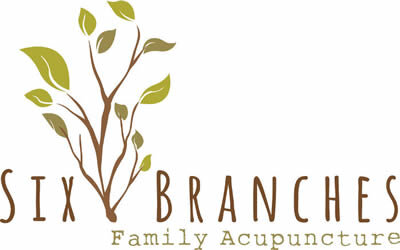The trend of early spring is starting to shift away from the cold Yin energy of winter and towards warmer, summer Yang.
Read moreTop 5 Supplements For Cold Season Immune Support
Here we share some supplements that we find valuable for staying healthy during cold and flu season (besides Vitamin C, did you need to be reminded about Vitamin C?)
Read moreEight Simple Ways To Boost Your Immunity During Flu Season
As these autumn days get shorter and cooler, we start to be inundated with ads and offers for flu shots, reminding us that cold and flu season is quickly approaching. Learn how TCM's common sense wisdom can help you enjoy the fall and winter and avoid colds and flus!
Read moreCupping Was In The News... and We Were Too!
This was so fun! Learn some details about cupping here.
Read moreSix Things You Should Know About Acupuncture For Pain Relief
Whether your pain is in your neck, hip, ankle, or stomach, here are a few things you should know about acupuncture for pain relief.
Read moreEmotions and the Spirit/Mind
Chinese Medicine doesn't have a lot to say about the brain. Although the brain is considered an "extraordinary organ" and sensory, memory and intellectual functions are attributed to it, there is not much written about its treatment clinically. When it comes to emotions and spirit/mental capacity however, TCM definitely has a lot to say!
Rather than assign all intellectual and emotional functioning to the brain as we do in Western medicine, TCM sees these functions as distributed throughout the body. Each Organ system in TCM is associated with an emotion and with a spirit or aspect of intellectual capacity.
Emotions are a main internal cause of disease, so too much of an emotion, or a long-suppressed emotion may cause injury to the associated Organ system. Also, injury to an Organ can affect the intellectual/emotional aspect associated with that Organ. Here is a basic overview of the Organs and their emotional and spirit/mental capacities.
Heart
Oh the Heart, the ruler of emotions. We talk about heartbreak, heartache, wearing our hearts on our sleeves. We instinctively know the heart is more than just a blood-pumping muscle. Well, Chinese medicine thinks so too. The Heart is considered the emperor of the Organs. It has a close relationship with the brain and houses mental consciousness and memory, and it governs speech and sleep. A dysfunction of the Heart can cause mental restlessness, poor memory, depression/anxiety, and insomnia. Someone who has a Heart-type depression may speak very slowly or have trouble 'speaking from the heart'.
The emotion that affects the Heart is joy, which expands the Qi and slows it down. You'll notice that all the other Organs are affected by emotions that seem negative (sadness, anger, fear), so why joy? Chinese medicine believes that too much of anything - even a good thing - throws off the balance of the body. Think of someone who is being manic - they have trouble sleeping, they may talk very fast and be very excited, they may also have trouble connecting with other people. This can actually feel very good for a time, but it is really too much joy for the body to sustain (hence the common swing to the other end of the spectrum - depression). On the other hand, too little joy can also injure the heart (think cold-hearted). Excessive craving and addiction can be an aspect of Joy as well. Want to know what Western medicine says about Joy and the Heart? Click here.
Liver
The aspect of the mind that lives in the Liver is called the Ethereal Soul. This is a broader, more spiritual aspect of the mind that influences our ability to see the big picture and have a sense of direction in life. It influences our creativity, vision, and inspiration. Giovanni Maciocia describes the Ethereal Soul's connection to the mind this way: "The Ethereal Soul is like an ocean of ideas, dreams, projects, inspiration, and the Mind can cope with only one at a time. If the Ethereal Soul brings forth too much material from its 'ocean' without integration by the mind, the person's behavior can become somewhat chaotic." On the other hand, without enough inspiration, the person can become depressed.
The Liver is affected by anger and its associated emotions - frustration, irritability, and depression. Stagnation in the Liver can be a result of these emotions, but stagnation can also cause these emotions, contributing to a nasty cycle. Excess anger makes the Liver Qi rise, which can cause headaches, dizziness, tinnitus, or vision changes.
Lungs
The Lungs house the Corporeal spirit, which deals with the very physical aspects of the world. It's relates to our most primitive physical senses of smell and touch. It is most affected by sadness and grief which dissolve the Qi. The Lungs are one of the main organs involved in Qi production, so in addition to dissolving Qi, sadness and grief can keep the body from producing new Qi as well. Symptoms may include shortness of breath, tiredness, tightness or discomfort in the chest, and frequent crying.
Worrying is another emotion that causes Lung pathology, and can also affect the Spleen. Worrying tends to knot the Qi, causing stagnation, which can result in slight breathlessness, tight shoulders, weak voice, constant sighing, poor appetite, fatigue, and chest or epigastric discomfort.
Spleen
And speaking of the Spleen, this Organ that most people never even heard of before they went to an acupunturist is actually very important to TCM. The TCM Spleen really includes Western medicine's spleen, pancreas, and duodenum, as well as some of the function of the thyroid and adrenal glands. It deals with the intellectual aspects of the mind. Besides being a major digestive organ in TCM, theability to concentrate, memorize, study, and apply critical thinking skills are all influenced by the Spleen. Remember the last time you ate a big, heavy meal before a test? Bad idea, right? Too much studying can also injure the Spleen, so if you're studying for a lot of exams, be sure to eat simple, warm, nourishing meals.
Besides being affected by worry, the Spleen is also affected by pensiveness. Similar to worry, pensiveness is brooding, constantly thinking about certain people or events, or nostalgia for the past, and can also include obsessive thoughts. It's kind of the negative side to the healthy Spleen's ability to focus and concentrate.
Kidneys
The Kidneys are so important in Chinese medicine, as they are the foundation of all the Yin and Yang energies of the body. They house the will-power aspect of the spirit/mind, which makes all other aspects possible. You may have the ability to focus on your work (Spleen), but your willpower sits you down at the desk to do it. You may have many creative ideas (Liver), but your willpower gives you the discipline to make them a reality.
The Kidneys are affected most by fear. Fear descends the Qi, which makes sense if you think of the last time you had to speak in front of people and had the sensation of needing to use the bathroom. Fear can be either a sudden fright, or a chronic state of fear or anxiety. So people who live in a constant state of fear, whether from a demanding job, an abusive living situation, or living in a war zone, will probably experience some damage to their Kidney system. Alternately, people with weak Kidneys may exhibit more anxiety or fear-based thinking. Deficiency of the Kidneys may show physical symptoms like weak knees, chronic low back pain, and frequent urination.








